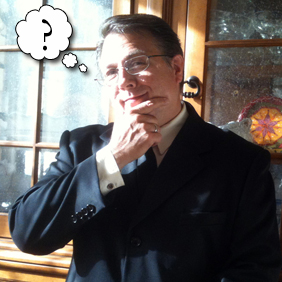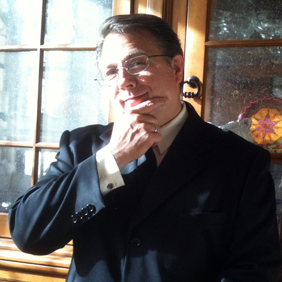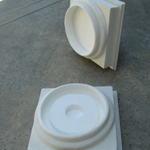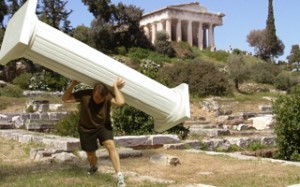 It’s as much about what I do as how I do it. I sometimes question how things are traditionally done and wonder if there isn’t another method. Not necessarily a better method but a different one. It doesn’t really matter to me if it’s a more efficient or effective method: it just matters if it’s an alternative method. That’s because the goal of alternative thinking is not efficiency in the performance of a task but in the cognitive process. Doing things differently exercises the mind and builds brain ‘muscle’ if you will. Of course, I am doubly pleased when an alternative method solves a problem and earns me the right to crow, “Oh the cleverness of me.”
It’s as much about what I do as how I do it. I sometimes question how things are traditionally done and wonder if there isn’t another method. Not necessarily a better method but a different one. It doesn’t really matter to me if it’s a more efficient or effective method: it just matters if it’s an alternative method. That’s because the goal of alternative thinking is not efficiency in the performance of a task but in the cognitive process. Doing things differently exercises the mind and builds brain ‘muscle’ if you will. Of course, I am doubly pleased when an alternative method solves a problem and earns me the right to crow, “Oh the cleverness of me.”
Sometimes finding an alternative method can be as simple as starting your shave on the other side of your face, pushing a button with your non-dominant hand or walking home on a different side of the street. The point is to create a new experience or gain new perspective, much like that memorable scene in Dead Poets Society when Robin Willimas’ character encouraged his students to stand on thier desks. This kind of openess to new ways of doing things, no matter how pointless it may seem at first, fosters a mind that is ready to make leaps and bounds in any direction. A good and enjoyable book that explores this mind jogging process is called, A Five Star Mind.
How did you learn to tie your shoes? Do you loop and scoop or chase the bunny through the hole? I got tired of tying the handles of plastic grocery bags in the same old way when I’m at the grocery store. It just seemed to me that there must be a more graceful method than overlapping and poking. Pulling seems better to me than poking. It didn’t take long to come up with something new. Now I take a bag handle in each hand and make a 180 degree turn so the right hand is now over my left wrist. I pull the looped handle over to my left pinky and hook it on my pinky finger. Then, with my free right hand, I take the other handle that’s pinched between my left forefingers and thumb. Once the bag handle exchange has been made, all I have to do is pull. This way of tying bag handles has become my unconsciously competent habit and sometimes results in strange looks form people while they try and figure out what just happened.
While doing things the way we are taught is useful for learning it can bind the mind up in habits. But let’s face it; habits are going to form no matter what. So I chose to make a habit out of doing things differently, out of learning, out of problem solving. This way I condition myself to expect the unexpected; so much so that the ordinary sometimes catches me by surprise. On the other hand, divesting from context faciitates finding new connections and relationships so whenever I’m asked, “Are you thinking outside the box?” I can confidenetly respond, “What box?”
At Cook/Douglas campus at Rutgers University in New Jersey, there’s a set of stairs on a bridge that are only a few inches high and more than the usual distance apart. This configuration has the consistent effect of causing one to rise up the step, take three strides and rise up the step on the same foot. This repeats with regular cadence; a sort of forced behavior. I would often take one extra large stride between stair steps or several tiny strides just to avoid being pigeonholed into behaving like a drone. Somewhere, I thought, there’s an architect major with sociology minor watching and laughing.
 Take the four-page flyer and condense it to two pages (1 front and back sheet) and you get this flyer intended for distributors to brand and send to their retailers. This is a good example of my skill at reducing content without sacrificing essentials.
Take the four-page flyer and condense it to two pages (1 front and back sheet) and you get this flyer intended for distributors to brand and send to their retailers. This is a good example of my skill at reducing content without sacrificing essentials.













